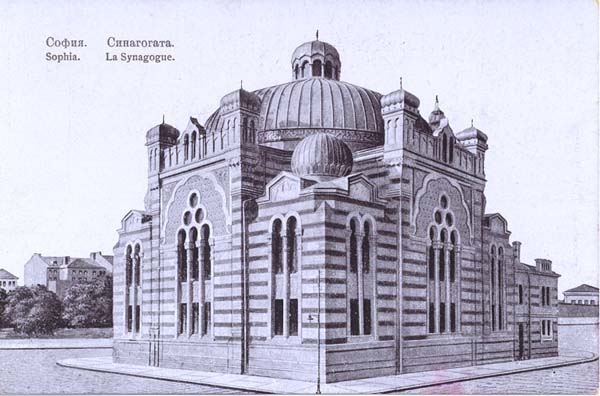
Jews settled in the Balkans as early as the 2nd century. Prior to the 15th century, most of the Jews followed the Byzantine Jewish rites. There was an influx of Hungarian Jews after expulsion from Hungary in 1376. Another large influx of Jews began after 1492 as a result of the Spanish expulsion of its Jews. By the time of the formation of the independent Republic of Bulgaria in 1878, there were about 19,000 Jews in the country. At the outbreak of World War II, the Jewish population was about 50,000.
During World War II, Bulgaria was allied with Nazi Germany. In its efforts to appease the Nazis, the Bulgarian government in 1942 surrendered to the Germans all Bulgarian Jews living in countries occupied by the Germans. In early 1943, the Bulgarians agreed to deport 20,000 Jews, 10,000 of which would come from the Jewish population of occupied Thrace and Macedonia. Rumors of these deportations triggered significant protests. These protests, combined with Bulgarian concern over Germany's future after the German defeat at Stalingrad, the deportation of Bulgarian Jews was stopped. However, over 11,000 Jews from Thrace and Macedonia were deported to the death camps of Poland. After the formation of the State of Israel, most of the Bulgarian Jews emigrated to Israel. In the last official census in 1992, only about 3,500 identified themselves as Jews.
Sofia is the capital of Bulgaria. The synagogue depicted below was erected between 1905-10. This synagogue is one of the largest Sephardic synagogues in Europe (1,170 seats). The synagogue is similar in many respects to the synagogue at Szeged, Hungary.
Salvation of Bulgarian Jews During WWII
Encyclopedia Judaica, CD-Rom Edition, Keter Publishing
Carole Herselle Krinsky, Synagogues of Europe, P.183-6
Copyright © 2000 Edward Victor